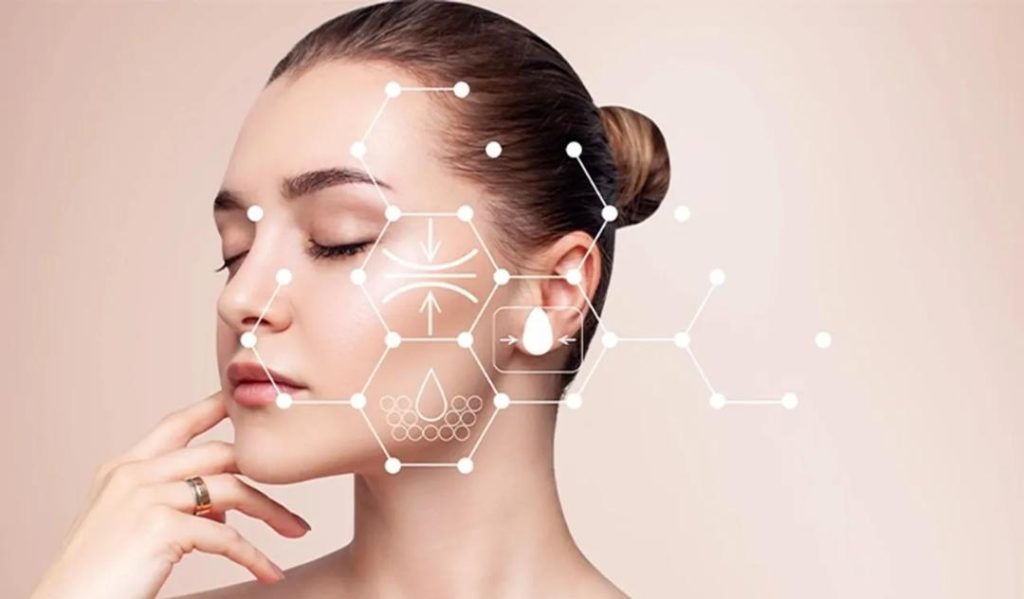
How AI & Innovation are Redefining the Beauty and Wellness Landscape
The skincare industry has undergone a significant transformation in recent years, moving away from traditional routines and towards a world of personalized solutions, inclusivity, and cutting-edge innovation. As we look ahead to 2025, skincare trends are reflecting a deeper understanding of diverse skin needs, a commitment to wellness, and a harmony between science and nature.
One of the most significant drivers of this evolution is the increasing adoption of artificial intelligence (AI) in the skincare industry. AI-powered skincare apps and devices are revolutionizing the way we approach skincare, allowing individuals to track their skin health, receive personalized recommendations, and monitor the effectiveness of their skincare routines.
For instance, AI-powered skincare apps like Neutrogena’s Skin360 and ModiFace’s Skin Analysis use machine learning algorithms to analyze users’ skin types, concerns, and goals, providing them with customized skincare recommendations and product suggestions. These apps have been shown to improve skin health, reduce the appearance of fine lines and wrinkles, and even help users to achieve a more even skin tone.
AI is also being used to develop more effective skincare products. For example, AI-powered skincare devices like the Foreo Luna and the Dr. Jolie AI-powered facial steamer use advanced algorithms to analyze users’ skin types and provide personalized treatment recommendations. These devices can help to improve skin texture, reduce the appearance of pores, and even out skin tone.
Another trend that is redefining the beauty and wellness landscape is the increasing focus on wellness and self-care. With the rise of mindfulness and meditation, individuals are placing a greater emphasis on taking care of their mental and emotional health, and this is translating to the skincare industry.
Wellness-focused skincare products and routines are becoming increasingly popular, with many consumers seeking out products that not only address their skin concerns but also promote overall well-being. This trend is being driven in part by the growing awareness of the importance of gut health and the impact that it has on skin health.
For example, skincare products that contain probiotics and prebiotics are becoming increasingly popular, as they help to promote a healthy gut microbiome and improve skin health. Similarly, skincare routines that incorporate relaxation techniques, such as meditation and deep breathing, are becoming more mainstream, as they help to reduce stress and promote overall well-being.
Inclusivity is another trend that is redefining the beauty and wellness landscape. With the rise of social media, consumers are demanding more diversity and representation in the skincare industry, and brands are responding by creating products that cater to a broader range of skin types and tones.
This trend is being driven in part by the growing awareness of the importance of representation and diversity in the beauty industry. Consumers are no longer satisfied with products that only cater to a narrow range of skin types and tones, and are instead seeking out products that are specifically formulated for their skin type and tone.
For example, skincare brands like Fenty and Rihanna’s Fenty Beauty are leading the charge in terms of inclusivity, offering products that cater to a broader range of skin tones and types. Similarly, skincare brands like Neutrogena and Olay are offering products that are specifically formulated for darker skin tones, recognizing that these consumers have been underserved in the past.
Finally, the trend towards sustainability is also having a significant impact on the beauty and wellness landscape. With the growing awareness of the importance of reducing waste and minimizing environmental impact, consumers are demanding more eco-friendly skincare products and packaging.
This trend is being driven in part by the growing awareness of the impact that the beauty industry has on the environment. From the packaging of skincare products to the ingredients used in their formulation, the beauty industry has a significant impact on the environment, and consumers are demanding more sustainable options.
For example, skincare brands like Lush and Acure are leading the charge in terms of sustainability, offering products that are packaged in eco-friendly materials and using ingredients that are sourced sustainably. Similarly, skincare brands like Dr. Hauschka and Weleda are using natural ingredients and packaging that is biodegradable.
Conclusion
The skincare industry is undergoing a significant transformation, driven by the increasing adoption of AI, a focus on wellness and self-care, a commitment to inclusivity, and a trend towards sustainability. As we look ahead to 2025, it is clear that these trends will continue to shape the industry, providing consumers with more personalized, effective, and sustainable skincare options.
Whether it’s AI-powered skincare apps and devices, wellness-focused skincare products and routines, inclusive skincare brands, or sustainable packaging, the future of skincare is bright and exciting. As consumers, we have the power to shape the industry and demand more from the brands that we support. By doing so, we can create a skincare industry that is more personalized, effective, and sustainable for all.
News Source:
https://www.shethepeople.tv/author-spotlight/guest-contributions/skincare-trends-for-2025-8728129






